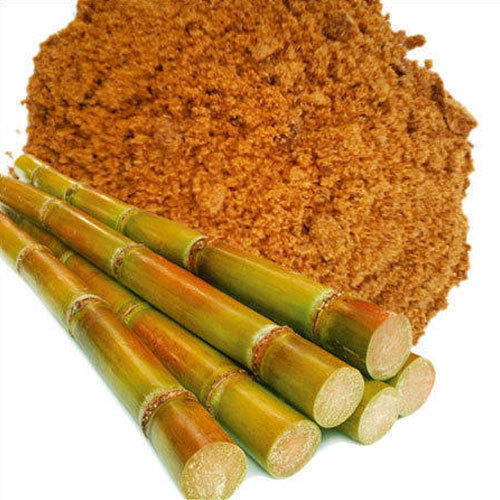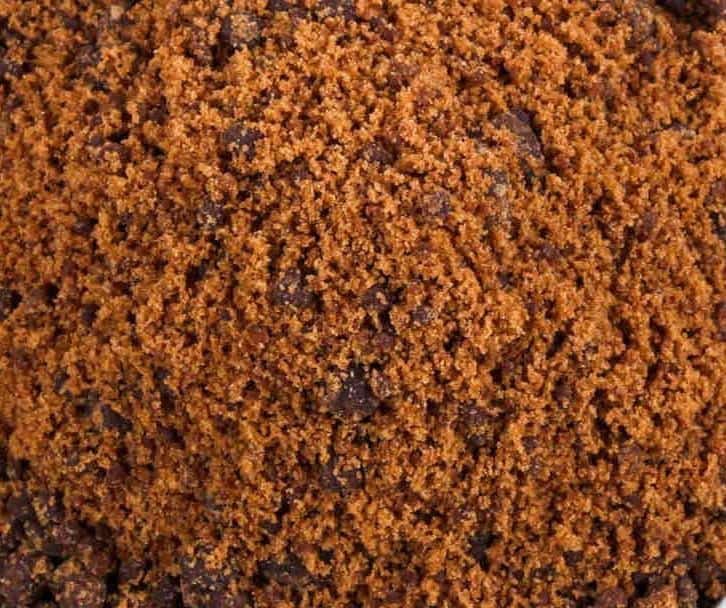Exploring the Health Benefits of Organic Jaggery Powder
Introduction:
Organic jaggery powder, an age-old sweetener derived from the sap of sugarcane or palm trees, is a treasured ingredient in traditional cuisines worldwide. Beyond its delectable sweetness, this natural sweetener boasts a myriad of health benefits that have been cherished for centuries. In this comprehensive exploration, we will delve into the multifaceted advantages of incorporating organic jaggery powder into your diet.
 |
| Jaggery Powder |
1. Nutrient Powerhouse:
Organic jaggery powder stands apart from its refined sugar counterpart due to its impressive nutritional profile. Rich in essential minerals such as iron, calcium, magnesium, and potassium, it serves as a valuable source of these vital nutrients. Iron, in particular, is crucial for maintaining healthy blood levels, while calcium supports bone health and magnesium aids in various biochemical processes within the body.
2. Sustainable Energy Source:
In addition to its nutritional richness, organic jaggery powder serves as a natural reservoir of energy. Composed primarily of carbohydrates, it provides a quick yet sustained release of energy, making it an ideal choice for fueling your body during physically demanding tasks or combating fatigue. Whether you're engaging in intense workouts or simply seeking an energy boost to power through your day, organic jaggery powder offers a wholesome solution.
3. Digestive Harmony:
One of the lesser-known benefits of organic jaggery powder lies in its ability to promote digestive wellness. Unlike refined sugars, which can disrupt digestive processes, jaggery acts as a gentle digestive stimulant, facilitating the secretion of enzymes that aid in the breakdown of food. This aids in smoother digestion and helps alleviate common gastrointestinal discomforts such as bloating and indigestion.
4. Blood Cleansing Properties:
Drawing from the principles of Ayurveda, organic jaggery powder is revered for its blood-purifying qualities. According to Ayurvedic teachings, regular consumption of jaggery aids in the elimination of toxins from the bloodstream, thereby promoting clearer skin, enhanced vitality, and overall well-being. Its purifying action helps rid the body of accumulated impurities, fostering a state of internal balance and harmony.
5. Immune Fortification:
Amidst its myriad of health benefits, organic jaggery powder emerges as a potent ally in bolstering the immune system. Packed with antioxidants, it aids in neutralizing harmful free radicals that contribute to cellular damage and oxidative stress. By fortifying the body's natural defense mechanisms, jaggery helps ward off infections and illnesses, ensuring robust immunity year-round.
6. Glycemic Stability:
Despite its inherent sweetness, organic jaggery powder exhibits a lower glycemic index compared to refined sugars. This means that it causes a gradual and sustained increase in blood sugar levels, preventing sudden spikes and crashes. For individuals managing diabetes or seeking to stabilize their blood sugar levels, jaggery offers a healthier alternative without compromising on taste.
7. Respiratory Resilience:
In traditional medicine systems such as Ayurveda, organic jaggery powder is revered for its efficacy in addressing respiratory ailments. It is believed to possess expectorant properties, making it beneficial for soothing coughs and colds. By facilitating the expulsion of mucus from the respiratory tract, jaggery aids in relieving congestion and promoting respiratory comfort.
8. Nourishment for the Skin:
The skin-nourishing properties of organic jaggery powder extend beyond its role as a sweetener. Laden with essential minerals such as zinc and selenium, it supports skin health from within. These minerals play key roles in collagen synthesis, skin regeneration, and antioxidant defense, resulting in a clearer, more radiant complexion.
Types of Jaggery Powder: Exploring Varieties Beyond Sweetness
Jaggery powder, derived from the sap of sugarcane or palm trees, comes in various types, each with its unique flavor profile, color, and nutritional properties. While all types of jaggery powder share the characteristic sweetness and rich molasses flavor, understanding the distinctions between them can enhance culinary experiences and provide insight into their diverse applications. Here are some common types of jaggery powder:
1. Sugarcane Jaggery Powder:
2. Palm Jaggery Powder:
3. Organic Jaggery Powder:
4. Regional Varieties:
5. Specialty Jaggery Powders:
Is Jaggery a Better Option over Refined Sugar?
While both jaggery and refined sugar are sources of sweetness, the nutritional profile and health benefits of jaggery make it a preferable choice for those seeking to minimize the adverse effects of sugar consumption on their health. However, it's essential to consume jaggery in moderation, as it still contains calories and can contribute to weight gain if consumed excessively.
Conclusion:
Organic jaggery powder stands as a testament to the bountiful gifts of nature, offering not only sweetness to culinary creations but also a wealth of health-enhancing properties. By incorporating this natural sweetener into your daily regimen, you embark on a journey towards holistic well-being, where nourishment and vitality converge. Embrace the richness of organic jaggery powder and experience its transformative effects on your health and vitality.
Keywords: organic jaggery powder, health benefits, nutrient-rich, sustainable energy, digestive wellness, blood purification, immune support, glycemic control, respiratory health, skin nourishment.




Post a Comment